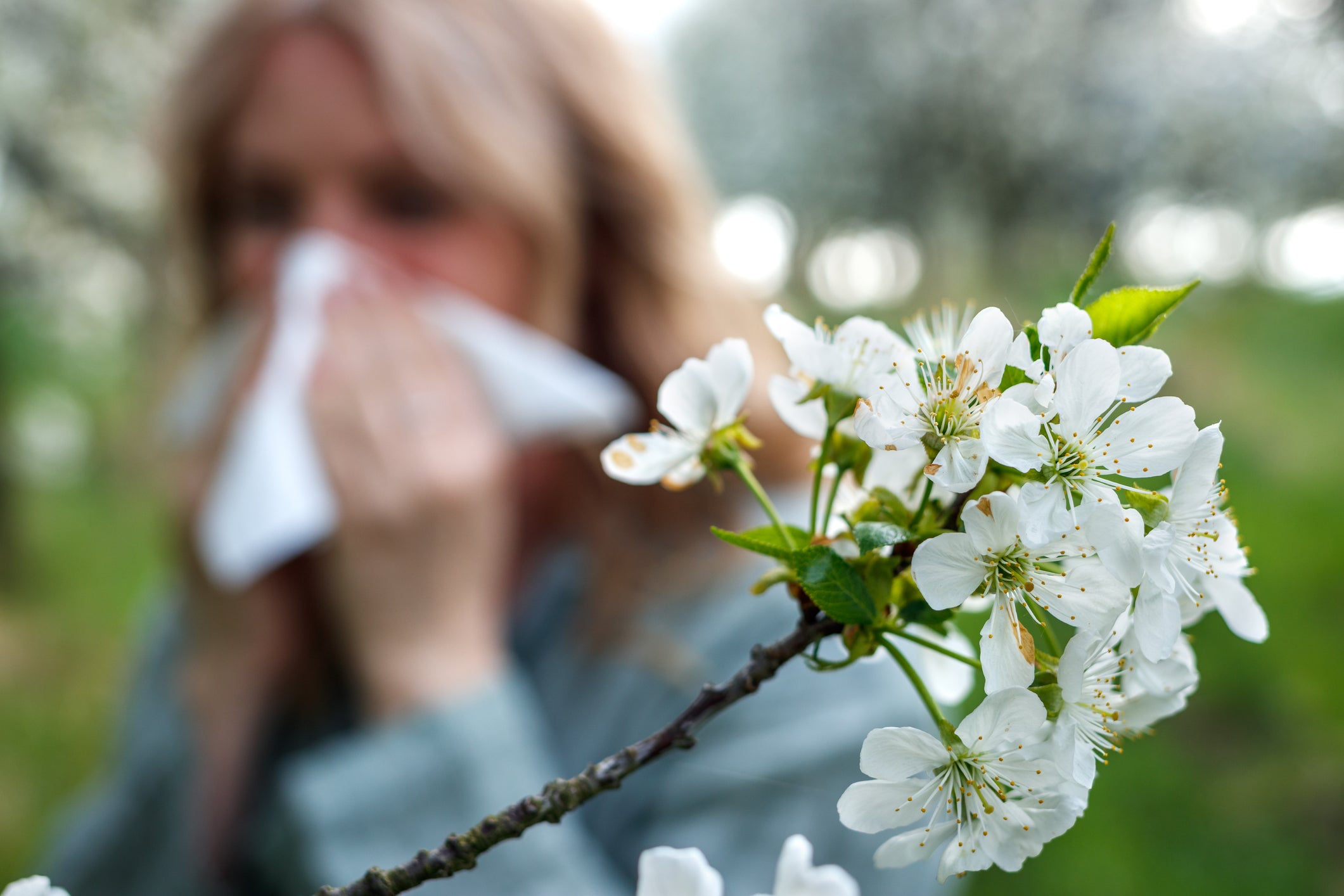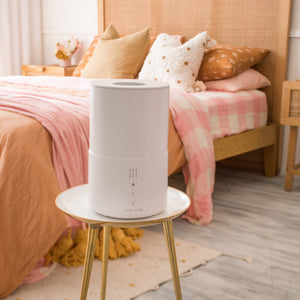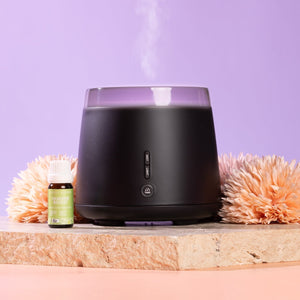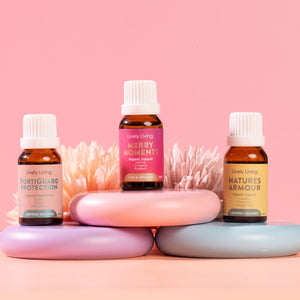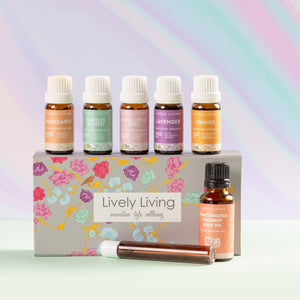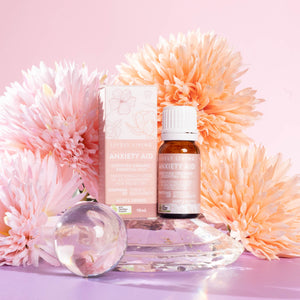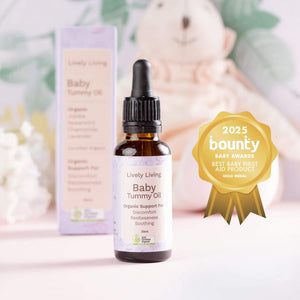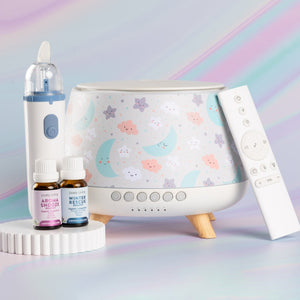Essential Oils for Hayfever: Your Guide to Allergy Relief
Have you ever felt the tickle of hay fever stirring, just as the world starts to bloom with life? It's like an unwanted guest who shows up at your springtime picnic, leaving you sniffling and sneezing amidst a sea of blossoms. You're not alone in this struggle; many have turned their gaze towards essential oils for hayfever, hoping for a breath of relief.
Inhale...exhale...
You can almost smell it now: the soothing aroma of lavender wafting through your home or that invigorating scent of eucalyptus cutting through blocked sinuses like a warm knife through butter. This isn't some far-off dream—it’s attainable peace right under your nose (quite literally!).
But wait, there's more! We're going to dive into how you can whip up your own remedies right at home using these ingredients.
Table Of Contents:
- Understanding Hayfever and its Symptoms
- The Role of Essential Oils in Allergy Relief
- Application Methods for Essential Oils in Hayfever Treatment
- Combining Essential Oils with Other Natural Remedies
- Precautions When Using Essential Oils for Hayfever Relief
- FAQs in Relation to Essential Oils for Hayfever
- Conclusion
Understanding Hayfever and its Symptoms
Hay fever, also known as allergic rhinitis, is more than just a seasonal nuisance. It's an allergic response to airborne substances like pollen or dust mites, causing cold-like symptoms such as runny nose, itchy eyes, congestion, sneezing, and sinus pressure.
Over 4 million Australians grapple with allergies every year. While some people might mistake hay fever for a common cold due to the similar symptoms, there are clear differences. Colds may cause body aches and fever, but these aren't typical signs of hay fever.
The timing of your symptoms can also be revealing. If you experience issues at the same time each spring when certain trees or plants release their pollens into the air, that's likely hay fever.
Allergies are triggered by allergen exposure, which leads to an immune system overreaction resulting in inflammation within nasal passages—causing those all-too-familiar allergy discomforts.
So how do we combat this? A natural approach could involve Lively Living's Seasonal Relief Organic Blend—a combination of essential oils formulated specifically for relief from pesky seasonal allergies.
The Role of Essential Oils in Allergy Relief
Essential oils can play a key role in providing relief from allergy symptoms. These natural remedies, packed with anti-inflammatory properties, have the potential to alleviate common issues associated with hay fever.
How Essential Oils Work for Hayfever Relief
Aromatherapy using essential oils is a powerful tool against allergies. Many essential oils, such as tea tree and eucalyptus, possess anti-inflammatory compounds that can reduce the severity of hayfever symptoms like sinus congestion and a runny nose.
Evidence suggests that lavender oil, known for its calming effects, also has natural anti-inflammatory properties. This makes it especially useful when combating histamine-induced skin inflammation.
Top Essential Oils for Hayfever Relief
Lemon essential oil works wonders by improving immunity and acting as an antihistamine itself - making it a strong contender among great essential oils used to relieve allergy symptoms. It's often diffused into the air to destroy airborne allergens like animal dander and dust mites.
If you're seeking effective relief during allergy season or just need some help combating pesky allergens at home – Lively Living’s Seasonal Relief Organic Blend could be your answer. A mix of peppermint oils along with other potent elements provides soothing comfort whilst promoting clearer breathing.
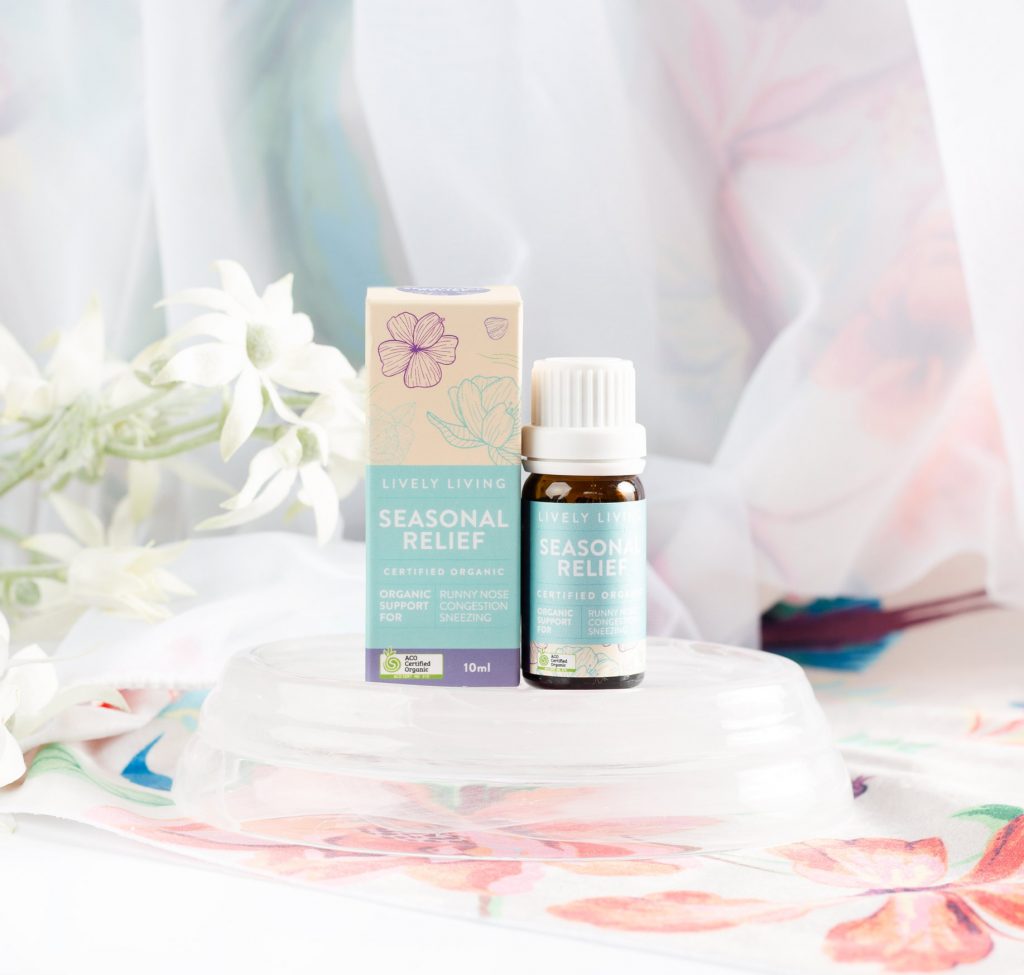 Organic Seasonal Relief Essential oil Blend
Organic Seasonal Relief Essential oil Blend
Application Methods for Essential Oils in Hayfever Treatment
When it comes to managing hay fever, the right utilization of essential oils can have a significant impact. You've got several options here - diffusing tea tree oil into your surroundings, applying lemon or eucalyptus essential oil topically after dilution with a carrier like jojoba oil, or creating your own homemade vapor rub.
Preparing a Homemade Vapor Rub
The thought of making your own vapor rub might seem daunting at first but fear not. It's simpler than you think. All you need is an assortment of powerful essential oils and some beeswax for consistency.
You start by melting about half a cup of beeswax over low heat. Once it's fully melted, add 20 drops each of peppermint and eucalyptus essential oils along with Lively Living’s Seasonal Relief Organic Blend. Stir well until everything is nicely combined then pour this mixture into small jars to solidify.
This DIY vapor rub helps clear blocked sinuses while also providing allergy relief from symptoms such as runny nose and watery eyes.1.
Remember though, before starting any new treatment regimen for allergies or other health concerns always consult with a healthcare professional.
Combining Essential Oils with Other Natural Remedies
If you're dealing with hayfever, essential oils can be your best friend. But they play even nicer when paired with other natural remedies like carrier oils and white vinegar.
Carrier oils such as sweet almond oil, or olive oil help to dilute the potent power of essential oils before applying them on your skin. This makes sure you get all the benefits without any irritation.
For instance, our Lively Living Seasonal Relief Organic Blend mixed in a ratio of 1:3 with sweet almond oil can soothe histamine-induced skin inflammation and offer relief from that pesky runny nose. It's one great way to fight allergies naturally.
Besides this, white vinegar is another useful ally in your arsenal against hay fever symptoms. A few drops of tea tree or lemon essential oil added into a solution of equal parts water and white vinegar make for an effective air freshener which helps eliminate allergy triggers like dust mites and animal dander.
Precautions When Using Essential Oils for Hayfever Relief
While essential oils can offer relief during allergy season, it's crucial to use them correctly. Overdoing it might lead to discomfort or skin inflammation.
Lemon, lavender, and eucalyptus essential oils are known powerhouses in fighting hay fever symptoms. But if left untreated, their potency could irritate the skin. Therefore, always dilute your chosen oil with a carrier like jojoba before applying topically.
Allergic reactions aren't limited to dust mites and animal dander; they may also occur due to certain types of essential oils themselves. So remember: do a patch test on your arm first before full application.
The Correct Dosage Matters
To maximize benefits without overstepping boundaries, start by adding 1-2 drops of Lively Living's Seasonal Relief Organic Blend into your diffuser. It will help relieve allergy symptoms while ensuring you don't overload on these powerful essentials.
Last but not least – keep out of reach from children and pets.
Safety Above All Else Research has shown that antihistamines often have side effects - but so can natural remedies when used improperly.
It’s all about balance - taking precautions ensures that these potent plant extracts bring relief rather than more sneezes.
FAQs in Relation to Essential Oils for Hayfever
What essential oils are good for hay fever?
Lavender, peppermint, lemon, and eucalyptus oils can offer relief from hay fever symptoms due to their anti-inflammatory properties.
What essential oil is an antihistamine?
Peppermint oil, with its natural antihistamine effect, can help fight allergy reactions like sneezing and runny nose.
What is the best essential oil for pollen allergies?
Eucalyptus oil helps clear sinuses making it great for battling pollen allergies. Dilute before using topically or diffusing into the air.
What essential oils are best for seasonal allergies?
A blend of tea tree, lavender, and lemon oils may provide significant relief during allergy season by fighting inflammation and allergens.
Conclusion
Essential oils for hayfever are a game changer. You've discovered their power to alleviate symptoms and boost your immune system naturally.
Aromatic oils such as lavender, tea tree and eucalyptus not only smell pleasant but can also help to alleviate hayfever symptoms like itchy eyes or a runny nose.
Remember that making homemade remedies such as vapor rubs isn't just cost-effective; it's empowering! To harness these powerful essential oils safely, remember to always dilute them with carrier oil before application on skin.
Incorporate essential oils into your daily routine during allergy season, be patient and you'll notice improvements in no time!









